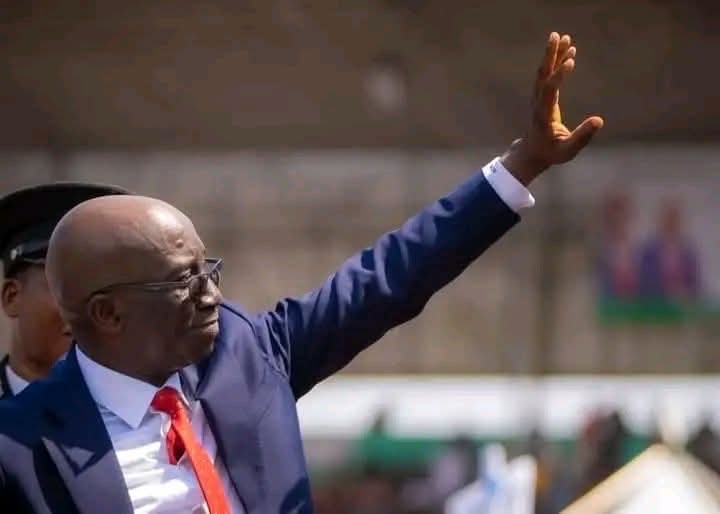The United Nations High Commissioner for Refugees (UNHCR) says a stateless person does not have a nationality of any country.
It notes further that while some people are born stateless — not considered as a national by any state under the operation of its law — other stateless persons can be refugees.
According to them, those factors that can induce statelessness include unchecked continual denials of peoples’ fundamental rights, economic rights, political participation, social and education rights, among others.
Mr Auwal Musa, the Acting General-Secretary of West African Civil Society Forum (WACSOF), argued that the media and other stakeholders must form a coalition to ensure that causes of statelessness were checked in the country.
He said, for instance, more than two million people were displaced in the north eastern part of the country due to Boko Haram insurgency and non of the neighbouring state was willing to accommodate them.
“This is a clear example of people that may be described as being in the process statelessness; and for instance, some young women abducted by the insurgents were said to have been bearing children for their abductors, leaving such children without a state or nation.
He said that similar instances of statelessness could be found in the south eastern part of the country where discrimination against women in particular was rampant.
“If you married outside your state and when it comes to political mainstreaming they will claim you are not from the state and if you go to your own state you are told to go back to your husband state, so you are rendered stateless,’’ he observed.
He expressed concern that the crisis in the north eastern part of the country had made women and children to be stateless because they were somewhat denied their rights as a result of the crisis in the region.
He also said there had been gross violation of human rights abuse of women and children in the region, advising the relevant authorities to check the trend.
He, nonetheless, said the reports of WACSOF on statelessness in the north eastern part of the country would help in the group’s advocacy message with other stakeholders to check human rights abuse in the region.
“We are designing advocacy messages to address the issue and the National Emergency Management Agency (NEMA), Nigerian Immigration Service, NHRC and National Assembly are part of the solution,’’ he said.
According to him, many have become refuges and destitute in their land and the authorities need to carry out series of advocacy, education and awareness creation to check statelessness.
Musa said the negative consequence of statelessness in the country was becoming a challenge that should be addressed urgently.
According to him, the significant role play by the media in terms of information dissemination, and awareness creation is crucial to winning the war against statelessness.
Musa stated that it was fundamental for civil society groups and the media to come together to mobilise support for addressing the stateless issue from the policy and legal perspective.
Mr Roger Hollo, Representative of UNHCR, nonetheless, observed that people had not really identified the scope of what constitute statelessness in Nigeria.
He called for a painstaking study of WACSOF reports on it to enable the stakeholders to proffer solution to the menace of human right violation which was one of the major causes of statelessness.
In her view, Mrs Magret Udoh, Executive Director, WACSOF, said Nigerians living outside their states of origin had full privileges and rights like indigenes of that state as enshrined in the constitution.
“If a man or woman had lived in a place all his lives, he should be entitled to all the privileges and rights of the indigenes of that particular state.
“You have lived in a place for 50 years to 60 years and at the end of the day, you will be told you are not an indigene of that state, especially if you want to contest an election or access state facilities,’’ she observed.
Udoh said that the federating units must ensure that fellow citizens were not denied their rights of existence, insisting that the level of deprivation faced by citizens must be curtailed by the government.
According to her, lots of people living in the north eastern Nigeria have been victim of Boko Haram insurgency and the situation the region is pathetic.
“Many young girls and women have been kidnapped, raped and some of them had relocated to other countries to survive attack by Boko Haram,’’ she observed.
However, Mr Saka Azimazi, Assistant Director, Field officer, Human Rights Education in NHRC, said there was a vital link between statelessness and human rights violation.
According to him, there is need to deal with statelessness in the country by addressing issues on human rights violation; a major contributor to political and economic marginalisation.
“Citizenship is a foundation for enforcing human rights and with the situation in the north eastern Nigeria, some citizens may not be able to lay claim to their rights as citizens.
“The NHRC is mobilised to support any steps that will be taking to curtail statelessness in the country.
“For some time now, some have lost their parents, some have even been sexually abused while others have gone through other kinds of dehumanisation in their own country without their faults,’’ he observed.
He, therefore, solicited the institution of legal frameworks to rectify statelessness and ensure a united and prosperous Nigeria.
____________________
Femi Ogunshola, News Agency of Nigeria (NAN)


